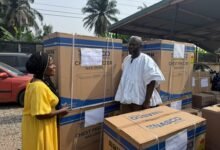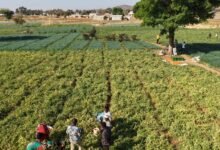
The results of the double track students in this year’s West African Senior High School Certificate Examination (WASSCE) released on Wednesday have dismissed the fears of the initiative affecting quality education in the country.
The performance of the students in the exams was very encouraging.
Speaking to the Ghanaian Times on his initial assessment of the just released results on the telephone yesterday, the Director-General of the Ghana Education Service (GES), Professor Akwasi Opoku-Amankwa, said an analysis of the just released results shows a remarkable improvement in student performance.
He explained that an initial seven-year analysis of Core subject data in the examination showed a positive trend in student performance.
The analysis, he said, was based on an assessment of the range between A1 and C6 which also constituted pre-qualification to tertiary education in the country.
Prof. Opoku-Amankwa said the candidates from “2021 were the pioneers of the double track school calendar introduced in 2018, stressing that “This points to the fact that the Double Track school calendar was a game-changer in allowing more students to have access to free SHS education without compromising on quality.”
He explained that the last four years had been exceptional with candidates topping 50 per cent plus on average, adding that “significantly, it is the 2020 and 2021 (free SHS candidates) who attained a 60 per cent in aggregate percentage passes in the core subject areas.”
He said the year 2020 and 2022 were the only years in the past seven years that more than 50 per cent of the candidates obtained A1-C6 in all core subjects.
Prof. Opoku-Amankwa noted that the numerous interventions rolled out by the government with the introduction of the flagship programme largely influenced the improvement in student performance.
“Some of these interventions include the training of Mathematical and science teachers, the provision of core textbooks for all students and the training and digitisation and dissemination of the training materials to all schools.
Others include the delivery of remedial packages to all students, the increase of contact hours,” the Director-General emphasised.
BY CLIFF EKUFUL






